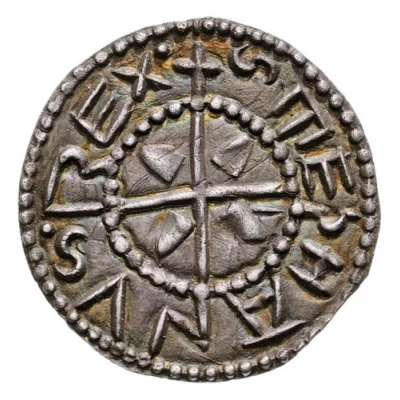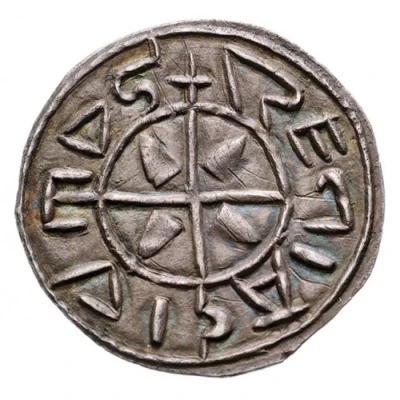


© Numismatics.hu
Denier - Stephen I ND
| Silver | 0.74 g | 13 mm |
| Issuer | Hungary |
|---|---|
| King | Stephen I (I. István) (1000-1038) |
| Type | Standard circulation coin |
| Years | 997-1038 |
| Value | Denier (Denár) (1) |
| Currency | Denier (997-1310) |
| Composition | Silver |
| Weight | 0.74 g |
| Diameter | 13 mm |
| Shape | Round (irregular) |
| Technique | Hammered |
| Demonetized | Yes |
| Updated | 2024-10-05 |
| Numista | N#33125 |
|---|---|
| Rarity index | 80% |
Reverse
Isosceles cross in a ring, wedges in between
Script: Latin
Lettering: +REGIA CIVITAS*
Translation: Royal City (of Székesfehérvár)
Edge
Plain.
Comment
Two types mentioned in Lajos Huszár's Münzkatalog Ungarn are considered variants of this type in Emil Unger's Magyar Éremhatározó.Variant 1 (Huszár #4): Obverse: +STEPHANVS -REX- Instead of triangular corners, there are elongated corners.
Reverse: +REGIACIVITVS The design is identical to the obverse.
Huszár notes that these denarii were imitated in northern European countries.
Variant 2 (Huszár #5): the coin is modeled after the type on this sheet, but used in Northern Europe. The minting is far from perfect, and the inscriptions are imprecise or incomplete. However, these coins retain a similar weight and size to the original.
Interesting fact
The Denier coin of Stephen I of Hungary, minted between 997 and 1038, is interesting because it was made of silver, which was a valuable and durable material at the time. This coin was also relatively small, weighing only 0.74 grams, making it easy to handle and transport. Despite its small size, the coin was an important part of the Hungarian economy during the Middle Ages, and it remained in circulation for many centuries. Today, it is a sought-after collector's item among numismatists and historians interested in the history of Hungary and medieval currency.